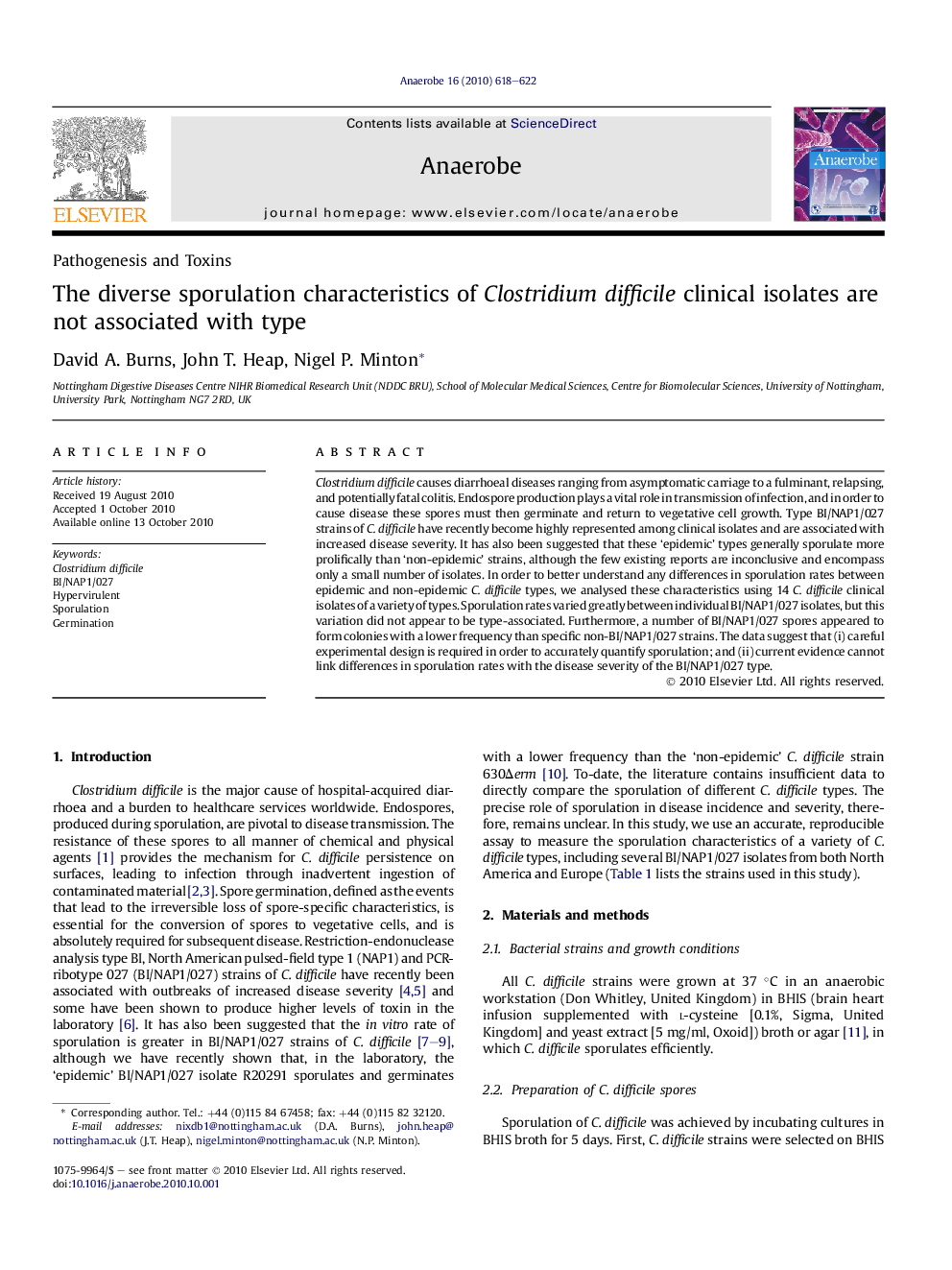| Article ID | Journal | Published Year | Pages | File Type |
|---|---|---|---|---|
| 3395624 | Anaerobe | 2010 | 5 Pages |
Clostridium difficile causes diarrhoeal diseases ranging from asymptomatic carriage to a fulminant, relapsing, and potentially fatal colitis. Endospore production plays a vital role in transmission of infection, and in order to cause disease these spores must then germinate and return to vegetative cell growth. Type BI/NAP1/027 strains of C. difficile have recently become highly represented among clinical isolates and are associated with increased disease severity. It has also been suggested that these ‘epidemic’ types generally sporulate more prolifically than ‘non-epidemic’ strains, although the few existing reports are inconclusive and encompass only a small number of isolates. In order to better understand any differences in sporulation rates between epidemic and non-epidemic C. difficile types, we analysed these characteristics using 14 C. difficile clinical isolates of a variety of types. Sporulation rates varied greatly between individual BI/NAP1/027 isolates, but this variation did not appear to be type-associated. Furthermore, a number of BI/NAP1/027 spores appeared to form colonies with a lower frequency than specific non-BI/NAP1/027 strains. The data suggest that (i) careful experimental design is required in order to accurately quantify sporulation; and (ii) current evidence cannot link differences in sporulation rates with the disease severity of the BI/NAP1/027 type.
